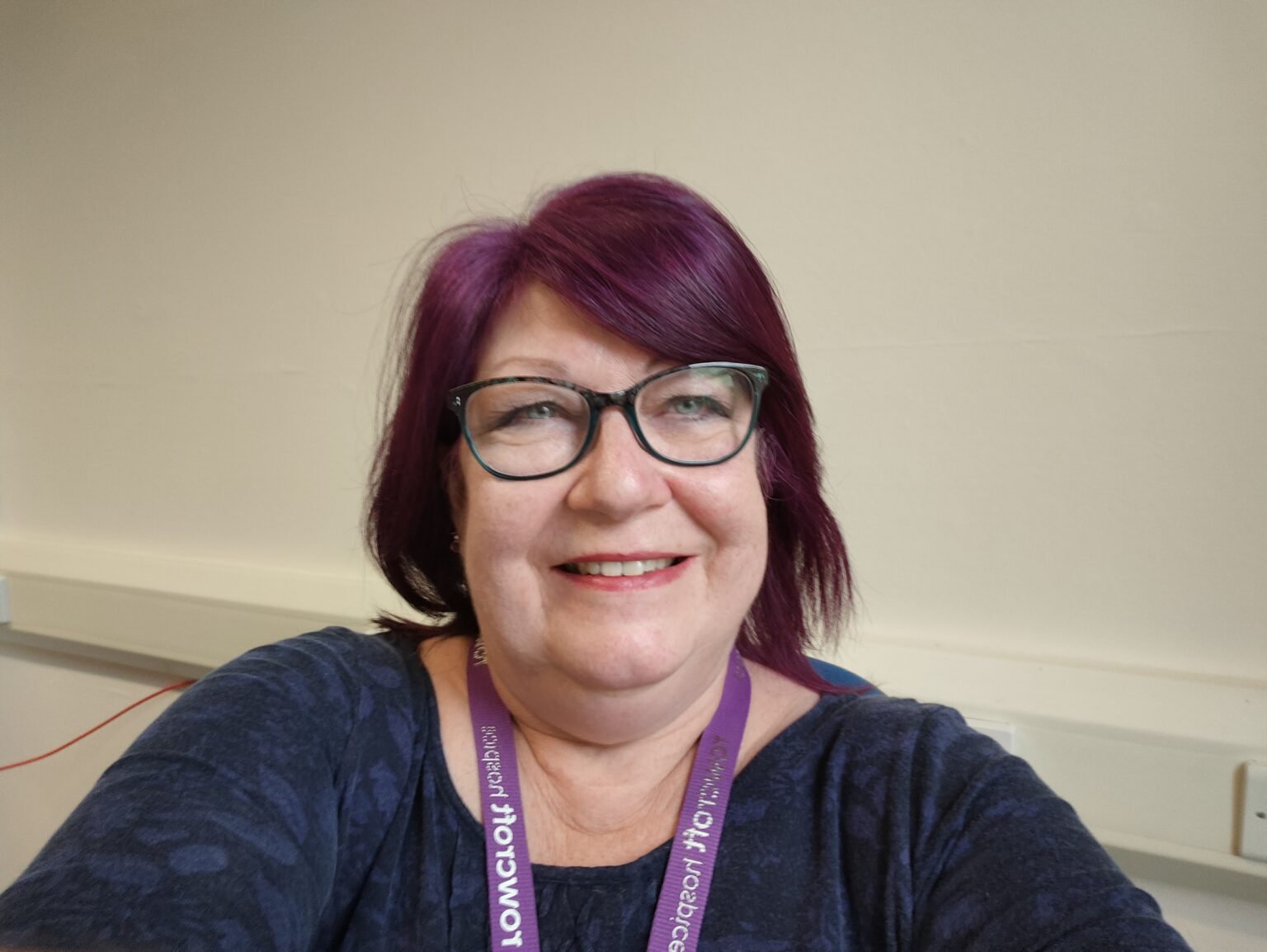How our Hospice at Home team cares for people at the end of life
While frailty is a leading cause of death in older people, it is often not recognised nor considered at end of life. As a group of symptoms rather than a single disease, frailty encompasses a range of physical, emotional, and social factors that can impact an individual’s overall well-being. At Rowcroft, we recognise the complexity of frailty and tailor our care to address the unique needs of each person. Here Karenne Weaver, our Hospice at Home Manager, explains how Rowcroft is supporting people with severe frailty in their own homes in the last two weeks of life.
Identifying frailty
“Frailty is something that comes with old age and it’s where people become more susceptible to disease and falls,” says Karenne. “People with frailty are weaker in general and less able to do things that they were doing previously, so they need more support. Those who are severely frail are completely dependent on others for their care. For Rowcroft, recognising when frailty progresses into the end-of-life phase is crucial for providing timely and compassionate care.”
Hospice at Home – a service for all
“Generally speaking, people think that they need a cancer diagnosis to be referred to our Hospice at Home service, but that’s not the case at all. We don’t filter people based on why someone is dying; we simply do what we can to support everyone who is in their last two weeks of life. We support people with lots of different types of needs, not just cancer.
“People assume that frailty sits outside the box as it’s not a disease as such but it’s just something that happens as we get old. At Rowcroft we recognise that people with frailty have needs as well, and people die due to frailty alone. Our Hospice at Home service is available to everyone who is approaching their final weeks of life, including those with frailty.
“Unfortunately, we can’t provide 24/7 care due to a lack of resources, so typically we may be able to provide a few nights’ support per week. Other agencies such as Marie Curie do the same and some care may also be possible through continuing healthcare funding, so that between us we can try to make sure that the family has support every night. In addition, we include some support visits during the day to provide assistance and advice.”
Caring for a loved one
“For many families, caring for a loved one at the end of life is a very scary thing to do, and many people have never done it before. They’re not only grieving with the thought of losing their loved one, but they’re also having to provide care which can be exhausting, particularly if the carer is elderly or frail themselves. Caring for a loved one at the end of their life is a whole new world to the one they’re used to, and families often tell us that having our support makes such a difference.
“The visits from our Senior Healthcare Assistants at night or during the day help to relieve the pressure, enabling the family to get a good night’s sleep, or to have a break, knowing that their loved one is in safe hands.”
Tailored care
“We try to plan our visits so that they fit in with patients and families’ needs. We make sure that the patient has got the care that they need and that the family is supported to care for their loved ones. For example, we make sure that the family knows how to provide good mouth care, or how to gently move the patient to avoid painful pressure ulcers.
“We remember that everyone is individual, and everyone has lived life in slightly different ways, so in terms of our care, no one approach fits all. We tailor our care to the unique needs and wishes of each individual and family and pride ourselves on delivering personalised care.”
24/7 telephone support
“We also provide a 24/7 telephone support, so families know that there’s always someone on the end of the phone who they can talk to. This provides immense reassurance and relief because families can call us at any time of day or night if they’re unsure of anything or need support.”
Frailty prevention
“The NHS is currently doing lots of promotion around preventing frailty. They’re raising awareness by highlighting the need to exercise to keep fit and strong, and the need to eat well. As a population we need to try and remain as healthy as possible for as long as possible, as this will help to prevent frailty. However, at some point we all may need some support at the end of our lives and the Rowcroft Hospice at Home team is there for patients and those closest to them.“

